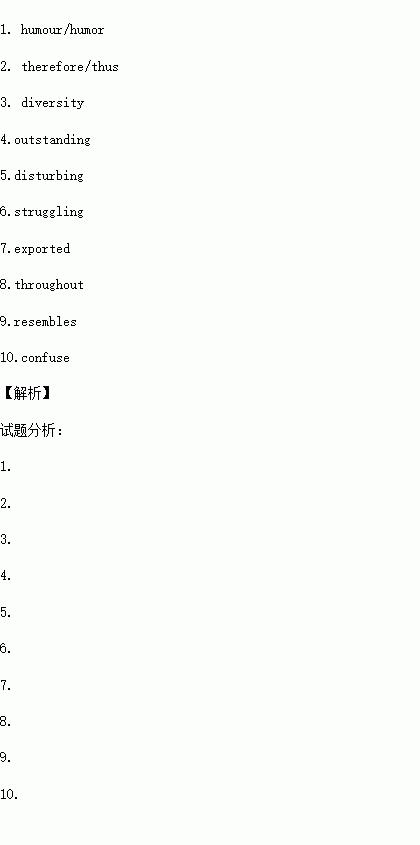题目内容
1.I don’t like such kind of ______________ (幽默).
2.He was ill and ______________ (因此) could not come.
3.These samples help us grasp the ______________ (多样性) of life on the planet.
4.It’s known that Abraham Lincoln is an ______________ (杰出的) leader.
5.The increase in the crime rate is ______________ (令人不安的).
6.She is s______________ to support a family on a very low income.
7.The company in Nanjing e______________ about 20,000 boxes of wine to the UK last year.
8.As we all know, football is played t______________ the world.
9.Jack really r______________ his brother Pete, you can hardly tell them apart.
10.It is important to explain this again or we will c______________ the students.
练习册系列答案
相关题目

